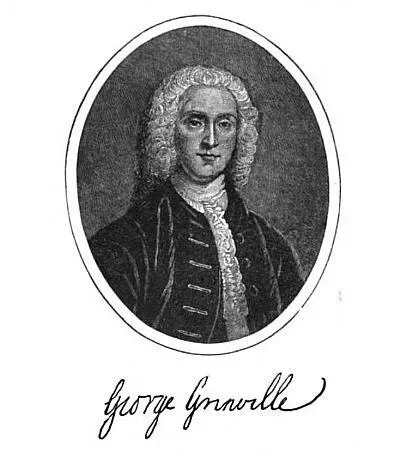John Fiske - The American Revolution
Здесь есть возможность читать онлайн «John Fiske - The American Revolution» — ознакомительный отрывок электронной книги совершенно бесплатно, а после прочтения отрывка купить полную версию. В некоторых случаях можно слушать аудио, скачать через торрент в формате fb2 и присутствует краткое содержание. Жанр: История, foreign_antique, foreign_prose, на английском языке. Описание произведения, (предисловие) а так же отзывы посетителей доступны на портале библиотеки ЛибКат.
- Название:The American Revolution
- Автор:
- Жанр:
- Год:неизвестен
- ISBN:нет данных
- Рейтинг книги:4 / 5. Голосов: 1
-
Избранное:Добавить в избранное
- Отзывы:
-
Ваша оценка:
- 80
- 1
- 2
- 3
- 4
- 5
The American Revolution: краткое содержание, описание и аннотация
Предлагаем к чтению аннотацию, описание, краткое содержание или предисловие (зависит от того, что написал сам автор книги «The American Revolution»). Если вы не нашли необходимую информацию о книге — напишите в комментариях, мы постараемся отыскать её.
The American Revolution — читать онлайн ознакомительный отрывок
Ниже представлен текст книги, разбитый по страницам. Система сохранения места последней прочитанной страницы, позволяет с удобством читать онлайн бесплатно книгу «The American Revolution», без необходимости каждый раз заново искать на чём Вы остановились. Поставьте закладку, и сможете в любой момент перейти на страницу, на которой закончили чтение.
Интервал:
Закладка:
In 1756, Shirley wrote to the Lords of Trade, urging upon them the paramount necessity for a union of the American colonies, in order to withstand the French; while at the same time he disparaged Franklin’s scheme, as containing principles of government unfit even for a single colony like Rhode Island, and much more unfit for a great American confederacy. The union, he urged, should be effected by act of Parliament, and by the same authority a general fund should be raised to meet the expenses of the war, – an end which Shirley thought might be most speedily and quietly attained by means of a “stamp duty.” As Shirley had been for fifteen years governor of Massachusetts, and was now commander-in-chief of all the troops in America, his opinion had great weight with the Lords of Trade; and the same views being reiterated by Dinwiddie of Virginia, Sharpe of Maryland, Hardy of New York, and other governors, the notion that Parliament must tax the Americans became deeply rooted in the British official mind.
Nothing was done, however, until the work of the French war had been accomplished. In 1761, it was decided to enforce the Navigation Act, and one of the revenue officers at Boston applied to the superior court for a “writ of assistance,” or general search-warrant, to enable him to enter private houses and search for smuggled goods, but without specifying either houses or goods. Such general warrants had been allowed by a statute of the bad reign of Charles II., and a statute of William III., in general terms, had granted to revenue officers in America like powers to those they possessed in England. But James Otis showed that the issue of such writs was contrary to the whole spirit of the British constitution. To issue such universal warrants allowing the menials of the custom house, on mere suspicion, and perhaps from motives of personal enmity, to invade the home of any citizen, without being held responsible for any rudeness they might commit there, – such, he said, was “a kind of power, the exercise of which cost one king of England his head and another his throne;” and he plainly declared that even an act of Parliament which should sanction so gross an infringement of the immemorial rights of Englishmen would be treated as null and void. Chief Justice Hutchinson granted the writs of assistance, and as an interpreter of the law he was doubtless right in so doing; but Otis’s argument suggested the question whether Americans were bound to obey laws which they had no share in making, and his passionate eloquence made so great an impression upon the people that this scene in the court room has been since remembered – and not unjustly – as the opening scene of the American Revolution.
In the same year the arbitrary temper of the government was exhibited in New York. Down to this time the chief justice of the colony had held office only during good behaviour, and had been liable to dismissal at the hands of the colonial assembly. The chief justice was now made removable only by the Crown, a measure which struck directly at the independent administration of justice in the colony. The assembly tried to protect itself by refusing to assign a fixed salary to the chief justice, whereupon the king ordered that the salary should be paid out of the quit-rents for the public lands. At the same time instructions were sent to all the royal governors to grant no judicial commissions for any other period than “during the king’s pleasure;” and to show that this was meant in earnest, the governor of New Jersey was next year peremptorily dismissed for commissioning a judge “during good behaviour.”
In 1762, a question distinctly involving the right of the people to control the expenditure of their own money came up in Massachusetts. Governor Bernard, without authority from the assembly, had sent a couple of ships to the northward, to protect the fisheries against French privateers, and an expense of some £400 had been thus incurred. The assembly was now ordered to pay this sum, but it refused to do so.
"It would be of little consequence to the people,” said Otis, in the debate on the question, “whether they were subject to George or Louis, the king of Great Britain or the French king, if both were arbitrary, as both would be, if both could levy taxes without Parliament.” A cry of “Treason!” from one of the less clear-headed members greeted this bold statement; and Otis, being afterward taken to task for his language, published a “Vindication,” in which he maintained that the rights of a colonial assembly, as regarded the expenditure of public money, were as sacred as the rights of the House of Commons.

In April, 1763, just three years after the accession of George III., George Grenville became Prime Minister of England, while at the same time Charles Townshend was First Lord of Trade. Townshend had paid considerable attention to American affairs, and was supposed to know more about them than any other man in England. But his studies had led him to the conclusion that the colonies ought to be deprived of their self-government, and that a standing army ought to be maintained in America by means of taxes arbitrarily assessed upon the people by Parliament.
Grenville was far from approving of such extreme measures as these, but he thought that a tax ought to be imposed upon the colonies, in order to help defray the expenses of the French war. Yet in point of fact, as Franklin truly said, the colonies had “raised, paid, and clothed nearly twenty-five thousand men during the last war, – a number equal to those sent from Great Britain, and far beyond their proportion. They went deeply into debt in doing this; and all their estates and taxes are mortgaged for many years to come for discharging that debt.” That the colonies had contributed more than an equitable share toward the expenses of the war, that their contributions had even been in excess of their ability, had been freely acknowledged by Parliament, which, on several occasions between 1756 and 1763, had voted large sums to be paid over to the colonies, in partial compensation for their excessive outlay. Parliament was therefore clearly estopped from making the defrayal of the war debt the occasion for imposing upon the colonies a tax of a new and strange character, and under circumstances which made the payment of such a tax seem equivalent to a surrender of their rights as free English communities.
In March, 1764, Grenville introduced in the House of Commons a series of Declaratory Resolves, announcing the intention of the government to raise a revenue in America by requiring various commercial and legal documents, newspapers, etc., to bear stamps, varying in price from threepence to ten pounds. A year was to elapse, however, before these resolutions should take effect in a formal enactment.
It marks the inferiority of the mother-country to the colonies in political development, at that time, that the only solicitude as yet entertained by the British official mind, with regard to this measure, seems to have been concerned with the question how far the Americans would be willing to part with their money. With the Americans it was as far as possible from being a question of pounds, shillings, and pence; but this was by no means correctly understood in England. The good Shirley, although he had lived so long in Massachusetts, had thought that a revenue might be most easily and quietly raised by means of a stamp duty. Of all kinds of direct tax, none, perhaps, is less annoying. But the position taken by the Americans had little to do with mere convenience; it rested from the outset upon the deepest foundations of political justice, and from this foothold neither threatening nor coaxing could stir it.
Читать дальшеИнтервал:
Закладка:
Похожие книги на «The American Revolution»
Представляем Вашему вниманию похожие книги на «The American Revolution» списком для выбора. Мы отобрали схожую по названию и смыслу литературу в надежде предоставить читателям больше вариантов отыскать новые, интересные, ещё непрочитанные произведения.
Обсуждение, отзывы о книге «The American Revolution» и просто собственные мнения читателей. Оставьте ваши комментарии, напишите, что Вы думаете о произведении, его смысле или главных героях. Укажите что конкретно понравилось, а что нет, и почему Вы так считаете.












